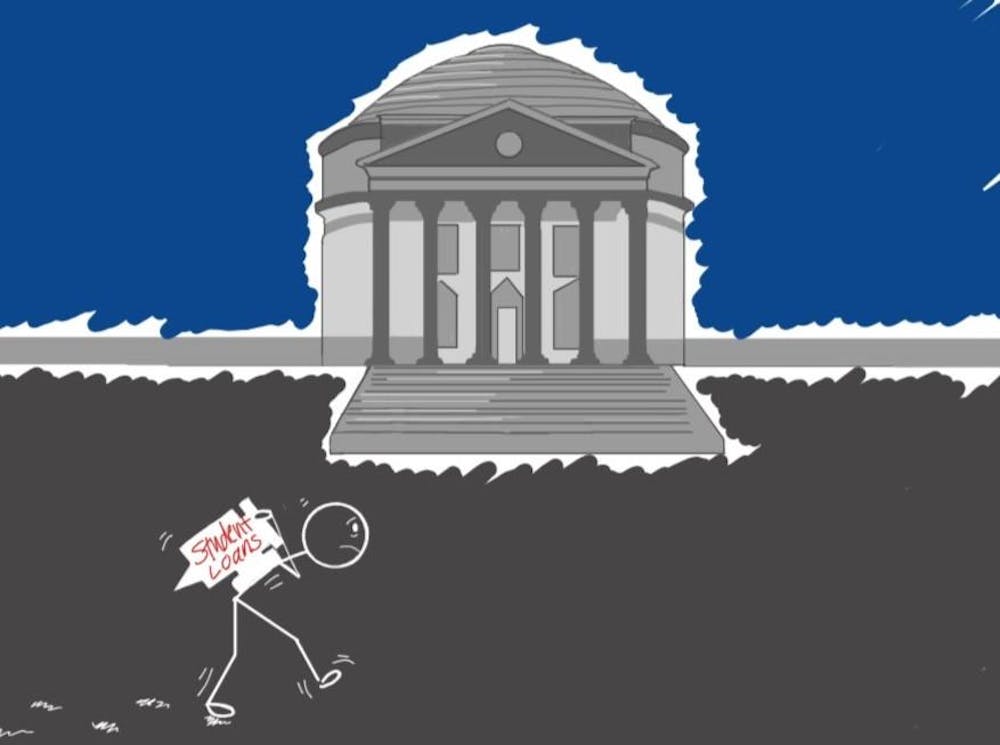With the Biden administration exiting the White House, the existing student debt relief program will likely be under fire. This program exists in the Department of Education which has overseen the successful cancellation of about $4.5 billion in student loans during the past four years. Not only has this program upheld one of Biden’s campaign promises, it has also advanced the accessibility of education. In contrast, president-elect Donald Trump’s proposed initiatives will harm education through privatization and budget cuts. And although the University has been rated the best public school for financial aid by the Princeton Review, about 25 percent of students here have taken out student loans as a part of their financial aid packages. Therefore, Trump’s new plans sound an alarm for the future of financial accessibility in higher education and at our University.
Trump’s administration will be responsible for appointing the heads of bureaucratic agencies like the Department of Education. This department is responsible for running the Federal Student Aid Program, which deals with federal student loans. This gives the Secretary of Education immense power when it comes to claims from borrowers. For instance, the current Secretary has helped roll out Biden’s relief program, and in the past, individuals in the same role have tried to block attempts at student debt relief rollout. Hence, the appointment of a new secretary for the Department of Education will be crucial to the future direction of student debt relief.
Unsurprisingly, Trump seems poorly positioned to make an appointment for the Department who will foreground student needs. His underqualified nominee, former WWE CEO Linda McMahon, aims to privatize public education, which falls in line with an ideology that does not support federal debt forgiveness. Privatizing public schools leads to increased pressure to spend more money for an education, thus exacerbating the very thing which the Department should seek to relieve. Not to mention that Trump’s loud disinterest in keeping the Department — though achieving this goal seems unlikely — leaves further speculation that student loan relief will not be at the top of his agenda. Trump’s carelessness for the Department and his choice of Secretary will inevitably engender problems for borrowers, leaving at best, uncertainty, and at worst, mountains of student debt.
However, Trump’s threats are not the only thing putting loan forgiveness at risk — Biden has unintentionally left borrowers in limbo due to massive legal obstacles which the rollout of his program prompted. Though one court approved Biden’s plan, his relief program was rejected by another court just three months ago, forcing him back to the drawing board. Having a relief program that has been partially put into effect — but not legally confirmed — puts student loan debtors in an incredibly tough spot, especially as Biden’s term is coming to a close. At this point, only select borrowers have been relieved of their debt despite much more expansive promises. And with no new plans from the outgoing Biden administration, the soon-to-be Former President has left the Department without a workable program and students at the complete mercy of the next administration.
It is no small thing to be at the Trump administration’s mercy — the Department under Trump will directly and negatively impact the future of students and recent graduates from our University. For instance, a good deal of students’ financial aid packages at this University include loans instead of exclusive grants. And with the University’s cost of attendance being around $78,000 a year for out-of-state students and $40,000 for in-state students — in addition to the recent tuition increase — many students on Grounds have to take out federal loans to finance their education. This pressing issue, which has failed to be adequately solved by Biden and not even acknowledged by Trump, spells out a dangerous future for this University’s students, a future possibly filled with crippling amounts of debt.
If student debt balloons, all the progress the University has made in being more financially accessible to a variety of students will be lost. To be sure, this is not a problem of the University’s making. Nevertheless, understanding the uncertainty of financial accessibility in education, the University must step up to the plate. Addressing the crisis of financial aid within the microcosm of university communities may be the best path forward if federal and state initiatives fail to keep up. Or in other words, it is time for Universities to take on a larger responsibility to secure financial freedom for their students.
And though our University ranks high on financial aid, there are still further initiatives the administration can institute to prevent substantial loan debt and protect graduates. For instance, the School of Law established a loan forgiveness program for recent graduates entering low-paying jobs so that they are not swimming in debt. Other universities in our country like Amherst College have also initiated “no loan” policies which remove any loans from being included in financial aid packages. By testing out policies like this at our University, we can ensure students are not limited by financial burdens brought on by political uncertainty.
Students and graduates should be allowed to use the skills they harnessed at our University to make change, instead of being forced into jobs simply to have the ability to pay down their overwhelming debt. Besides, how fruitful can our work after our time at the University be, if our actions are dictated by the debt accrued just from earning a degree?
Ryan Williams is a senior columnist who writes about politics for The Cavalier Daily. He can be reached at opinion@cavalierdaily.com.
The opinions expressed in this column are not necessarily those of The Cavalier Daily. Columns represent the views of the authors alone.







